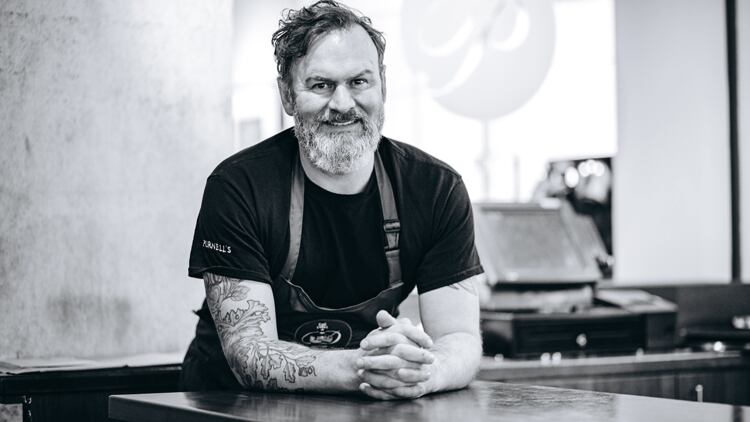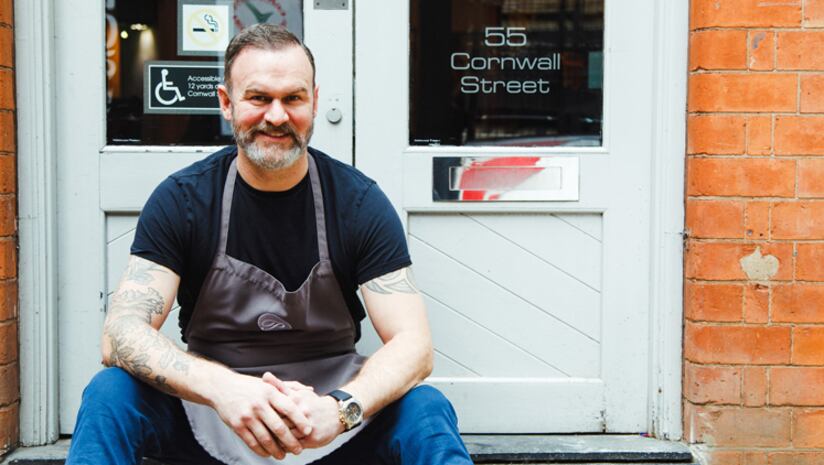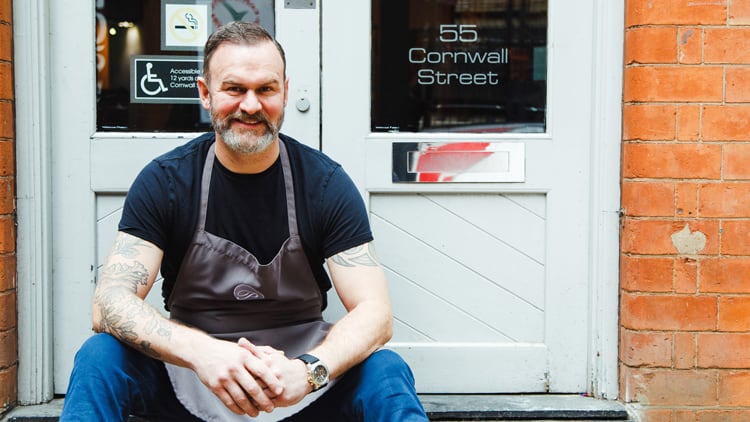In October you closed Purnell’s after 17 years. Tell us about that
I never had a financial backer for the restaurant—I did it off my own back. I re-mortgaged the house, maxed out my credit cards, and did it the old-fashioned way. I battled through a couple of recessions, the credit crunch, the 2008 bank collapse. Even though the industry had its peaks and troughs, it was manageable. I made a decent living, and I loved it. Brexit was difficult, but we got through it. Then Covid hit. I made good use of the grants and loans because my landlord didn’t give me any financial support. We pivoted to food boxes and managed to survive. When we reopened, the atmosphere was euphoric. Business was booming, VAT was only 5%, and I reinvested in the restaurant. But then people started staying away. Energy prices soared. I got hit with a couple of huge tax bills, and we began to lose money. I reached a point where I was putting in £12,000 of my own money every month just to stay afloat. We shut in October 2024. My dad passed away the month before. He said to me, “Are you losing money?” (Yes). “Are you enjoying it?” (No). “Are you stressed?” (Yes). “Then get rid of it.” So I did.
How did it feel?
It broke my heart. I still wake up at night wondering if I should’ve held on a bit longer. But we looked at the numbers, the Christmas bookings, and everything in front of us, and I knew it was the right call.
How is the fine dining sector right now?
Maintaining high standards is incredibly hard—costs are out of control. I also run a tapas bar round the corner from Purnell’s called Plates by Purnells. It’s more accessible—you can have a few small plates and a glass of wine, or go all in and do the full menu. People’s mindsets are changing. They know a tasting menu will cost £300 to £500 before they even start, and a lot of people just don’t want that anymore. Maybe only 20% of the country can afford to eat in fine dining or Michelin-starred restaurants. These days, you have to be more accessible. The way people eat is evolving, and we need to listen—every bum on a chair is worth its weight in gold.
What are the biggest challenges the industry is facing?
Margins are so tight now, there’s no room to manoeuvre. The rise in National Insurance contributions means we have to pass on costs to customers. Prices at both my places [Purnell also runs The Mount in Henley-in-Arden] are going up 10% because my NI costs have gone up 10%. VAT is a huge issue. This is an industry that brings in a third of revenue for the Treasury, but we’re the ones being battered. We need a movement on VAT—either a temporary holiday or a reduction that gets phased back in. It would bring confidence and help offset all the other rising costs. But right now, we don’t stand a chance.
What can the industry do to help itself?
We need to be better at communicating what things actually cost. We’ve been too soft, almost like a doormat. Chefs are generous by nature—hospitality is about giving—but we also need to look after ourselves. I’m not saying we should be mean, but we can’t be afraid to raise prices when we need to.
You’re now cooking at The Boardroom at Birmingham City Football Club…
It’s got the essence of what I was doing at Purnell’s, and I enjoy it—but I haven’t seen any of the football! There’s a pub round the corner from the ground where I used to have six pints of Guinness before a match. Now I’m sweating over a stove and mopping floors. I feel like Cinderella.
Any other projects on the horizon?
I’m opening a new restaurant in August with my business partner Phil Innes, who owns a couple of Loki Wines shops. There’s a movement in London right now where people go out for a glass of good wine and a few small plates, then move on to the next place. That’s what we’re aiming for. We’ll also offer larger sharing plates for people who want more of a sit-down experience. You’ll be able to come in for a glass of wine—maybe something interesting served via Coravin—and a few dishes, or go all in and do the whole menu. If it works, we’d love to roll the concept out to places like Manchester.
You’ve been cooking for 36 years. What keeps you going?
I love food. I love service. I love hospitality. I’ve been doing this since I was 14, coming from a council estate and living the dream. I’m not a spectator—never have been, sometimes to my detriment. I need to be in the action. And after the last six months, I can’t wait to jump back in and start something new.




